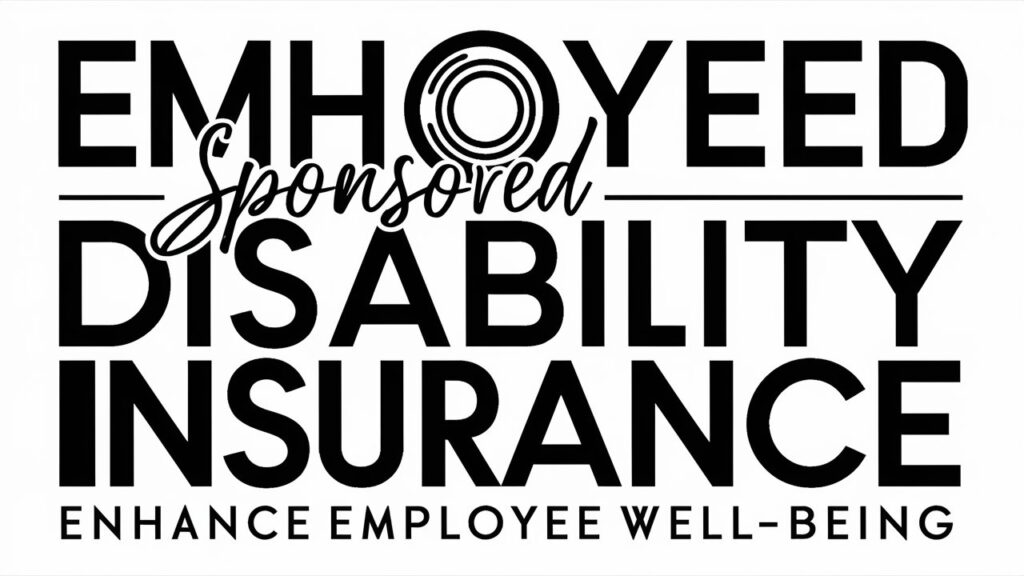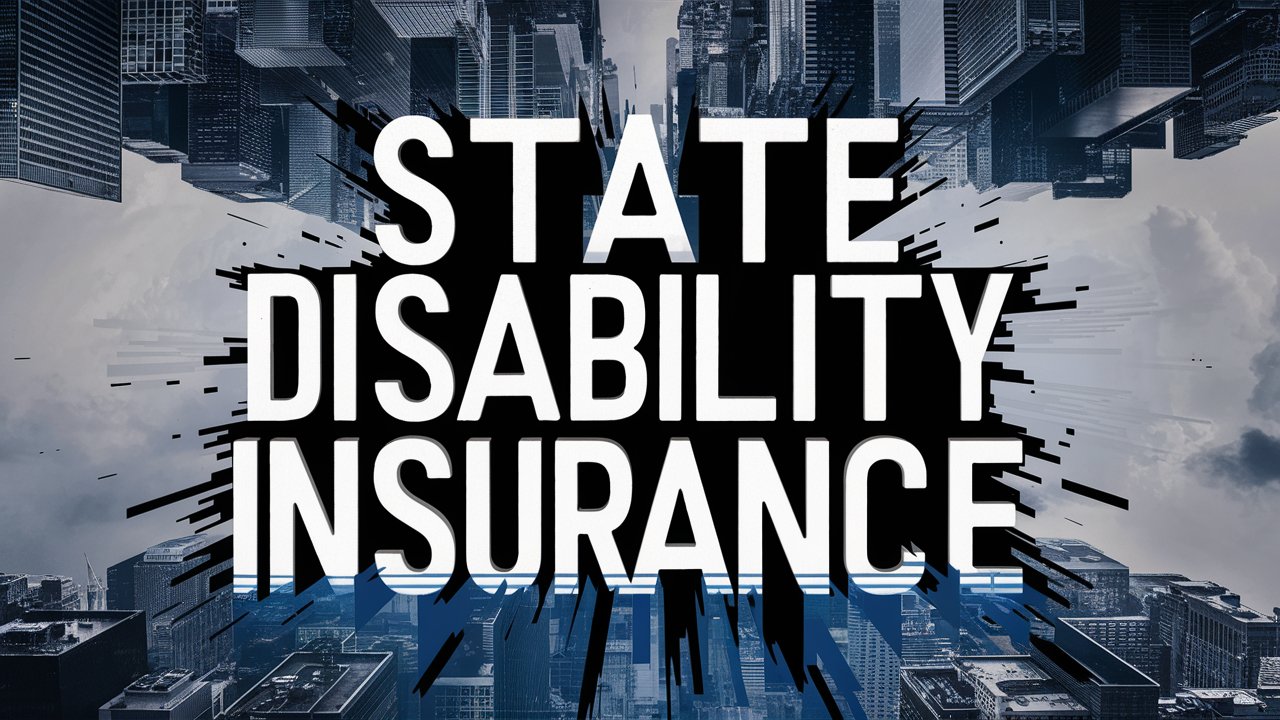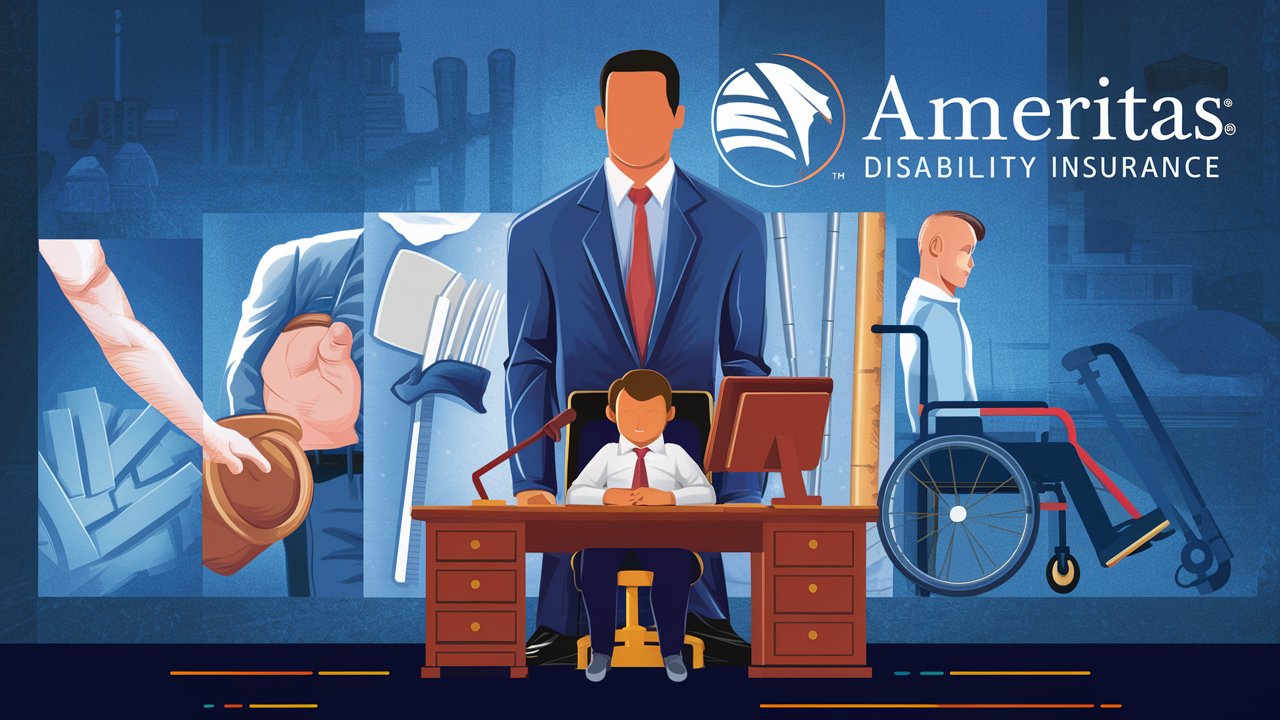Employer-sponsored disability insurance is a vital benefit that provides financial support to employees who can’t work due to illness or injury. This insurance comes in two main forms-short-term and long-term disability-offering crucial income protection and peace of mind during challenging times.
Introduction
Employer-sponsored disability insurance is a crucial benefit that many workers may overlook when evaluating their overall compensation package. This form of insurance provides financial protection for employees who are unable to work due to illness or injury, ensuring that they continue to receive income during their period of disability. As businesses strive to attract and retain top talent, offering robust disability insurance is becoming increasingly common. In this comprehensive guide, we will explore the various aspects of employer-sponsored disability insurance, including its benefits, how it works, and why it is essential for both employees and employers.
What is Employer-Sponsored Disability Insurance?
Employer-sponsored disability insurance is a type of coverage provided by an employer that offers financial support to employees who are unable to work due to a disabling condition. This insurance generally comes in two forms: short-term disability (STD) insurance and long-term disability (LTD) insurance. Each type serves different purposes and provides various levels of support, depending on the duration of the disability and the policy terms.
Short-Term Disability Insurance
Short-term disability insurance is designed to cover a portion of an employee’s salary for a limited period, typically ranging from a few weeks to six months. This coverage is intended for temporary disabilities that prevent employees from performing their job duties but are expected to resolve relatively quickly. Common examples of conditions covered by STD insurance include surgery recovery, maternity leave, or minor accidents.
Long-Term Disability Insurance
Long-term disability insurance provides financial protection for employees who experience extended periods of disability that last beyond the short-term coverage period. LTD insurance typically kicks in after short-term benefits are exhausted and can provide income replacement for several years or until the employee reaches retirement age. This type of insurance is crucial for serious or chronic conditions, such as severe injuries, long-term illnesses, or disabilities that impact the employee’s ability to perform their job for an extended time.
How Does Employer-Sponsored Disability Insurance Work?
The process of employer-sponsored disability insurance involves several key steps, from enrollment to claims processing. Understanding how this insurance works can help employees make informed decisions and ensure they receive the benefits they are entitled to.
Enrollment
Employees typically become eligible for disability insurance coverage once they meet certain requirements, such as completing a probationary period or working for the company for a specified duration. Enrollment in the disability insurance plan is often automatic, but employees should review their benefits package to confirm their coverage details and understand any waiting periods or exclusions.
Premiums and Cost
In most cases, employer-sponsored disability insurance premiums are paid by the employer, although some plans may require employees to contribute a portion of the cost through payroll deductions. The amount of coverage and the premium rates can vary depending on the employer’s plan, the employee’s job role, and the level of coverage selected.

Filing a Claim
When an employee becomes disabled, they must file a claim with the insurance provider to receive benefits. This process generally involves providing medical documentation, such as a doctor’s note or medical records, to substantiate the disability. Employees should follow the specific procedures outlined in their policy to ensure a smooth claims process and avoid potential delays or denials.
Benefit Payments
Once a claim is approving, the insurance provider will begin disbursing benefit payments according to the terms of the policy. For short-term disability insurance, this typically means receiving a percentage of the employee’s salary for the duration of the short-term coverage period. For long-term disability insurance, benefit payments may continue for an extended period, depending on the severity of the disability and the policy terms.
Benefits of Employer-Sponsored Disability Insurance
Employer-sponsored disability insurance offers numerous advantages for both employees and employers. Understanding these benefits can help illustrate why this coverage is a valuable component of a comprehensive benefits package.
For Employees
- Financial Security
Disability insurance provides a safety net for employees who are unable to work due to illness or injury. This financial support can help cover essential expenses, such as mortgage payments, utility bills, and medical costs, ensuring that employees and their families are not left in a precarious financial situation during their recovery.
- Peace of Mind
Knowing that they have disability coverage can offer employees peace of mind, allowing them to focus on their recovery without worrying about their financial stability. This support can alleviate stress and contribute to a faster and more successful recovery.
- Access to Comprehensive Care
Many disability insurance policies include provisions for accessing specialized medical care or rehabilitation services, which can be essential for employees recovering from serious conditions or injuries.
- Job Security
Disability insurance can also help employees feel more secure in their jobs, knowing that their employer is committed to supporting them during difficult times. This can enhance job satisfaction and loyalty, contributing to a more positive work environment.
For Employers
- Attracting and Retaining Talent
Offering robust disability insurance is a key factor in attracting and retaining top talent. In a competitive job market, comprehensive benefits packages can differentiate an employer from its competitors and help secure high-quality employees.
- Reduced Absenteeism
By providing disability insurance, employers can help mitigate the financial impact of employee absences, which can reduce the frequency and duration of sick leave and improve overall workforce productivity.
- Enhanced Employee Well-being
Supporting employees through disability coverage demonstrates a commitment to their well-being, which can improve morale and foster a positive workplace culture. Employees who feel valued and supporting are more likely to be engaged and motivated in their roles.
- Legal Compliance
In some jurisdictions, providing disability insurance may be a legal requirement for employers. By offering this coverage, employers can ensure compliance with relevant regulations and avoid potential legal issues.
Key Considerations for Employers and Employees
When evaluating employer-sponsored disability insurance, both employers and employees should consider several factors to ensure they make the most informed decisions.
For Employees
- Coverage Details
Employees should review the details of their disability insurance policy, including coverage limits, waiting periods, and benefit durations. Understanding these aspects can help employees manage their expectations and plan for potential gaps in coverage.
- Supplemental Coverage
In some cases, employees may choose to purchase supplemental disability insurance to enhance their coverage. This additional coverage can provide higher benefit amounts or extend the duration of benefits, offering added financial protection.
- Claims Process
Familiarize yourself with the claims process and requirements to ensure a smooth experience when filing a claim. Keeping accurate records and following the insurer’s guidelines can help expedite the process and avoid potential issues.
For Employers
- Plan Design
Employers should carefully design their disability insurance plans to meet the needs of their workforce. This includes selecting appropriate coverage levels, benefit durations, and premium structures that align with the company’s budget and employee expectations.
- Communication
Clearly communicate the details of the disability insurance plan to employees, including coverage options, enrollment procedures, and claims processes. Providing this information can help employees make informed decisions and utilize their benefits effectively.
- Regular Review
Regularly review and update the disability insurance plan to ensure it remains competitive and meets the evolving needs of the workforce. Conducting periodic assessments can help identify areas for improvement and ensure that the plan continues to provide valuable support.
Conclusion
Employer-sponsored disability insurance is a vital component of a comprehensive benefits package, offering crucial financial support for employees who experience illness or injury. By providing short-term and long-term disability coverage, employers can enhance employee well-being, attract and retain top talent, and contribute to a positive workplace culture. For employees, understanding the details of their disability insurance policy and the claims process can ensure they receive the support they need during challenging times. Both employers and employees should carefully consider their options and make informed decisions to maximize the benefits of disability insurance coverage. As the workforce continues to evolve, the importance of robust disability insurance remains a key factor in promoting financial security and overall well-being in the workplace.
For more details please visit our home page: Click Here

